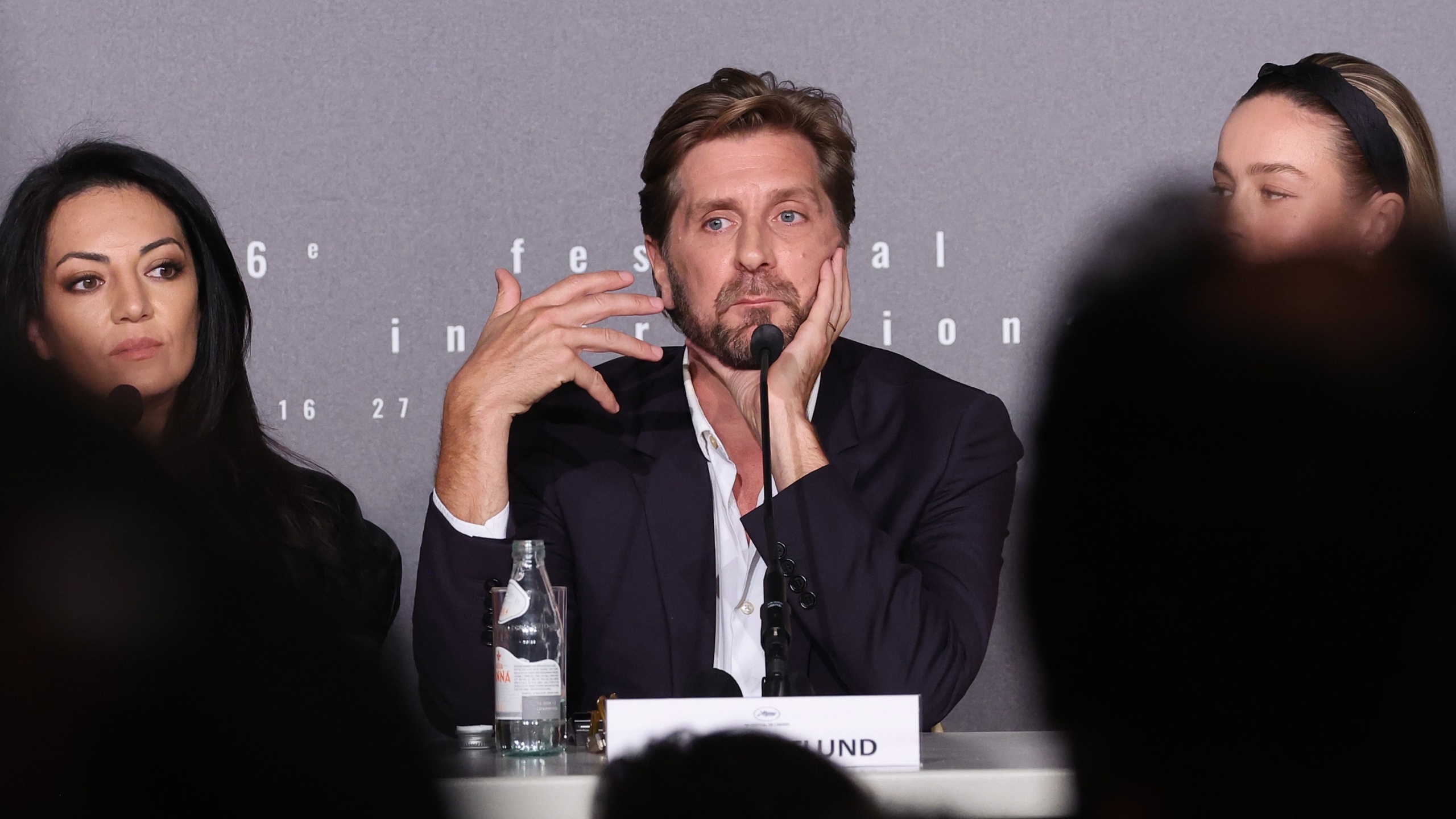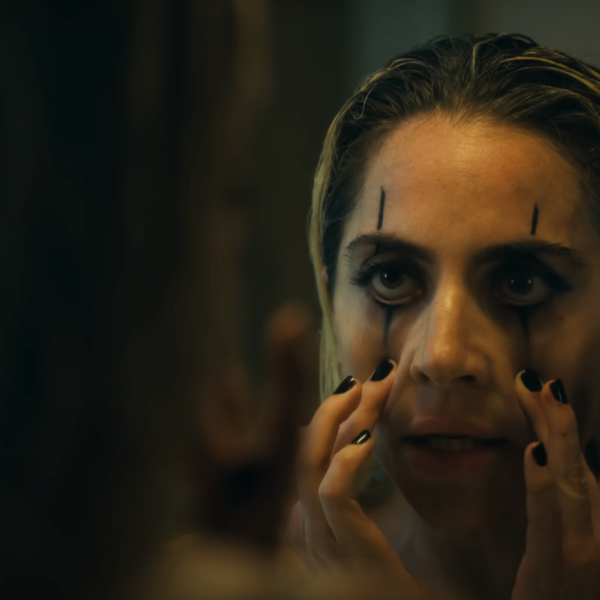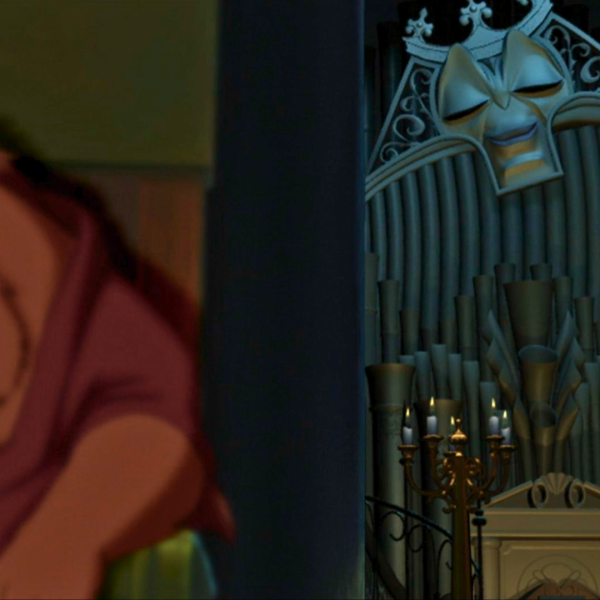Ruben Östlund is one of only nine filmmakers to win the Palme d’Or twice — and both movies went on to score Oscar nominations. The Swedish director’s 2017 art world satire “The Square” landed a Best International Feature Film nomination, while last year’s anarchic cruise ship opus “Triangle of Sadness” wound up notching noms in both Best Picture and Best Original Screenplay.
However, when IndieWire asked him about the relationship between the Palme d’Or and the Oscar race during a press conference for the Cannes jury he presides over this year, he was unequivocal about which prize meant more to him. “For me, it’s an easy choice if I have to choose between an Oscar and a Palme d’Or,” he said. “I’d rather have one more than have an Oscar.”
For now, Östlund gets to experience the other side of the equation, serving as president for the official competition jury over the next 10 days alongside an international jury that includes Paul Dano, Brie Larson, and fellow Palme d’Or winner Julia Ducournau.
The lineup is a hodgepodge of global cinema and includes acclaimed auteurs such as Ken Loach (“The Old Oak”) and Hirokazu Kore-eda (“Monster”). Östlund said that the Cannes fixation on filmmakers led him to develop an obsession with the Palme early on. “I started in film school in 1995,” he said. “It was interesting because the teachers of that school, they were always talking about the history of filmmakers at Cannes. I look at myself as a European filmmaker, I’m part of a European tradition when it comes to the role of filmmaking. I think the role of cinema that we have in European culture is something that I’m willing to fight for. In my opinion of course the Golden Palme is the most important film prize in the world.”
Yet Cannes has served as a major launchpad for the global side of Oscar season in recent years, with “Parasite” going from a Palme to a Best Picture win in 2020 and 21 nominations for Cannes premieres at the 2021 Oscar ceremony. The Academy has taken greater interest in the category and overall international representation over the past year, hiring a full-time staffer to oversee the international category and non-U.S. membership. Earlier this month, it revised the rules for international Oscar submissions by requiring at least 50 percent of each country’s submission committee to be comprised of filmmakers or craftspeople. Members of the Academy will be engaging with the Cannes community at the festival and hosting an event for members in attendance this week.
However, Cannes artistic director Thierry Fremaux has suggested over the years that the Oscars should be a platform for American films. Asked about that conclusion by IndieWire in an interview earlier this week, he reiterated that stance. “For me, the Oscars are above all an American event, with a prize for international cinema,” he said. “In France, the Cesar for best film can only be awarded to a French film, as in Spain a Spanish film, et cetera.”
Östlund acknowledged that his experiences with awards season made him appreciate the profile that the Oscars can bring. “When it comes to the Oscars, there’s a feeling that there’s an impact on more average audience,” Östlund said. “They know about that, there’s an even stronger brand around that than the cineaste brand of filmmaking.”

The director was also asked at the press conference about the gender disparity in the lineup and across the industry. While there are a record seven films directed by women in this year’s competition, that’s still less than half of the overall section. Notably, the Academy has included gender parity as one possible criterion fulfilling its new inclusion standards. However, Östlund took a broader view when asked about the issue.
“The problem is not only gender,” he said. “It’s class.”
He added that he serves as a film professor at the University of Gothenburg and saw the limitations of state funding on filmmaking careers there. “We’re often taking people coming from working class, middle class, but they are often not continuing being directors after school because they feel financially stressed,” he said. “The financial stress that is in the backbone of the working class makes them discontinue making movies. … Even when we’re trying to achieve diversity, there’s something about financial security that makes them discontinue. You have those extra hours you have to put in and naturally they drop out.”
He also noted that when he was growing up in the 1980s on Styrsö, a small island off the coast of western Sweden, his commune provided him with filmmaking resources at a young age. “We could borrow a digital camera and an editing table,” he said. “They gave it to the youth of the village in order to have something to do in their spare time. That was the reason I started to make movies. It was a communal action that made people start to work. If you start to have moving images as a subject in primary school, a lot more people will know how to use the tool and reflect on the possibility that this is moving images and move onto to making feature films.”
These days, Östlund said, such educational initiatives were even more valuable. “We have 45 million cameras in the world, but we don’t really discuss in which ways images are influencing us and how we look at the world,” he said. “In these times when we are communicating so much with moving images, this has to go into the subject of primary schools.”
On a lighter note, Östlund said he had few rules for his jury this year aside from requiring that they keep their opinions about the competition private. “This will be the first jury in the history of the Cannes Film Festival where the publicists will have no rumors to tell to each other,” he said. He was hoping to hold deliberations with the jury after every three films they watch. “If someone comes up to us and asks us what we thought about a film, we won’t [say],” he said.
The jury press conference at Cannes is sometimes an uneventful affair since the jurors have yet to experience any of the movies. This time, however, there was much to discuss, with Dano noting that his wife Zoe Kazan was currently on the picket lines with their infant child, and Larson dodging an awkward question about Johnny Depp appearing in out-of-competition opening night film “Jeanne du Barry.” “We’ll see if I see it, and I don’t know how I’ll feel about it if I do,” she said.
Ducornau, meanwhile, got asked whether her role on the jury would be impacted by the presence of a new film from Nanni Moretti (the filmmaking comedy “Towards a Bright Future”). When “Titane” won the Palme d’Or in 2021, Moretti was in competition with “Tre Piani,” which lost. On Instagram, the filmmaker posted a snarky comment a few days later. “Getting old suddenly,” he wrote in Italian. “It happens. Especially when one of your films goes to a film festival. And it doesn’t win. And instead, it’s another film that wins whose lead role gets pregnant with a Cadillac. You suddenly age.”
Ducornau shrugged it off. “I will watch his film like any other film, obviously,” she said. “The great opportunity of being on the jury is that you can exercise your open-mindedness, without bias. Personally, I do not want to know anything about any movies I’m going to see. I did not read anything, I did not hear any interviews. I want to come fully as a virgin every time I get to one of these films to honor the work that the director has put in it.”
For his part, Östlund said that he was hoping to set his team at ease throughout the festival. “It’s always interesting to be on a jury because there are so many group dynamics going on,” he said. “You try to create a certain kind of atmosphere where you don’t have to try to be smart all the time. They shouldn’t be scared of saying what their gut feeling is, what comes to them. If you have a jury atmosphere where everyone is trying to be intellectually smarter than one another, then you’re missing out on something. … We don’t have to be smart. We just have to follow our first instinct for how to say something, and then we will find out how to formulate that.”





